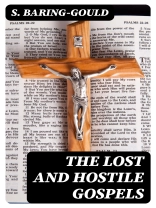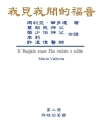In ‘The Lost and Hostile Gospels, ‘ S. Baring-Gould embarks on a rigorous examination of early Christian texts that exist outside the canonical New Testament. This seminal work delves into apocryphal and heretical gospels, offering readers a rich tapestry of theological diversity and historical context that challenges the orthodox interpretations of Christianity. Baring-Gould employs a critical yet accessible literary style, blending scholarly rigor with engaging prose, as he uncovers the narratives that were overshadowed by accepted doctrine. Through meticulous analysis, he situates these texts within their socio-political milieu, providing vital insights into the complexities of early Christian beliefs and their evolution. S. Baring-Gould was a polymath with diverse interests including theology, folklore, and literature, which undoubtedly influenced his approach to this work. His expansive knowledge and fervent curiosity stemmed from a desire to uncover the marginalized voices of Christianity’s past, spurred by a belief that understanding these perspectives is essential to comprehending contemporary faith. Drawing from his background as a journalist and an author, Baring-Gould weaves together historical narrative and personal reflection, creating a compelling argument for the relevance of these forgotten texts. I highly recommend ‘The Lost and Hostile Gospels’ to scholars, students, and anyone interested in the complexities of religious thought. This book not only illuminates lesser-known Christian texts but also invites critical reflection on the nature of belief itself, making it a significant contribution to the study of religious history and theology.
Sobre el autor
Sabine Baring-Gould (1834-1924) was an English hagiographer, antiquarian, novelist, and eclectic scholar. His literary style melds the detailed observations of a historian with the engaging narrative of a storyteller, providing insights into his contemporary Victorian society as well as medieval European culture. As a prolific writer, he penned over 1, 200 publications, encompassing various genres including theology, folklore, history, and fiction, earning a place in intellectual circles of his era. Perhaps, one of the most enduring of his legacies is the hymn ‘Onward, Christian Soldiers, ‘ which reflects his religious fervor and commitment to Anglican beliefs. Baring-Gould’s scholarship spanned across many areas, best exemplified in his work ‘The Lost and Hostile Gospels’ (1874), where he delves into the study of non-canonical texts and their impact on early Christianity. This book stands testament to his relentless pursuit for a comprehensive understanding of theology and ecclesiastical history. His wide-ranging knowledge and curiosity about the past made him a significant figure in Victorian literature and religious scholarship. Despite his contributions being sometimes overshadowed by his contemporaries, Baring-Gould remains an intriguing figure to those who study mythology, theology, and cultural history.












